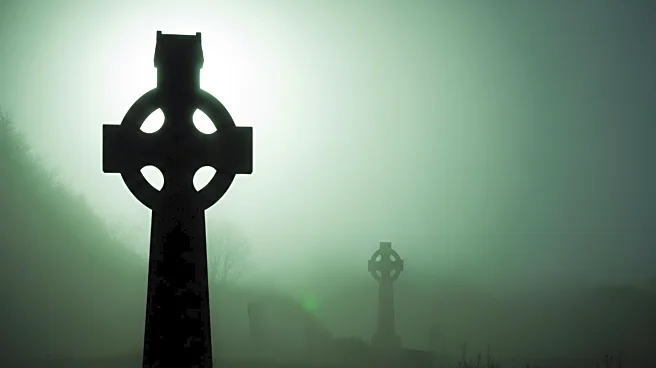What is the story about?
What's Happening?
Liam Neeson is producing a film titled 'The Lost Children of Tuam,' which addresses the historical scandal of unmarked child graves at the Bon Secours Mother and Baby Home in Tuam, County Galway, Ireland. The film, directed by Frank Berry and featuring Monica Dolan, is based on a 2017 New York Times article by Dan Barry. It follows Catherine Corless, a history enthusiast who uncovered the burial of as many as 796 children in unmarked graves, sparking a campaign for justice. The film is a collaboration between Element Pictures, BBC Film, and Screen Ireland, with MK2 handling international sales.
Why It's Important?
The film sheds light on a significant historical injustice, emphasizing the importance of accountability and remembrance for victims and survivors. It highlights the role of individual determination in uncovering truths and advocating for justice, as demonstrated by Catherine Corless. The production, involving high-profile entities like BBC Film and Screen Ireland, underscores the global resonance of the story, potentially influencing public discourse on historical child care practices and institutional accountability.
What's Next?
The excavation of the mass grave began in the summer of 2025, indicating ongoing efforts to address the historical wrongs. The film's release in Ireland and the United Kingdom by Volta Pictures Distribution will likely stimulate further discussions and actions regarding historical injustices and child welfare. Stakeholders, including government bodies and advocacy groups, may respond with renewed calls for policy changes and reparations.
Beyond the Headlines
The film's exploration of past injustices may prompt broader reflections on current child welfare systems and societal values regarding care and protection. It could lead to increased scrutiny of historical narratives and inspire similar investigations into other institutions with questionable pasts. The cultural impact of the film may extend beyond Ireland, influencing international perspectives on historical accountability.

















